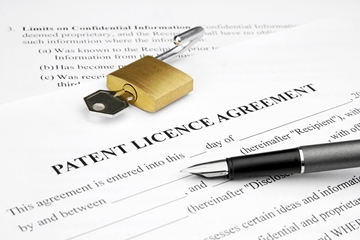 Intellectual Property (IP) is a term that describes the application of the mind to develop something new or original. There are various types of IP available and they can exist in various forms; a new invention, brand, design or artistic creation.
Intellectual Property (IP) is a term that describes the application of the mind to develop something new or original. There are various types of IP available and they can exist in various forms; a new invention, brand, design or artistic creation.
Some IP rights require a formal process of application, examination and registration. Companies and Intellectual Property Commission (CIPC) administer the following IP domains in South Africa: trademarks, patents, designs and copyright (films only).
It’s important that you manage your IP to ensure you get the best protection and the most out of your idea/invention. The creator of IP is not necessarily the owner – it’s therefore, important that ownership is addressed through proper contractual arrangements. When a business creates value around an idea, process, brand or product, it can protect this value and prevent other people from benefiting from it financially by registering their intellectual property rights.
There are various types of intellectual property:
Trademark registration
Trademark registration is used to protect your branding, for example, your logo. Once you have registered your trademark no one else may use it or a mark that looks very similar to it.
The CIPC website contains detailed information on trademark registration, including details on:
Design registration
You can register the design of something you have created to prevent others from copying the shape, form, appearance, pattern, ornamentation or configuration of the item.
Information on what can be registered and how to register a design is available on the CIPC website.
 Patent registration
Patent registration
You can register a patent to prevent other people from copying your invention. This can be an innovative product, a new process or a new technical solution to a problem. Patent-protection means that the invention can’t be commercially made, used, distributed or sold without the owner's consent.
Detailed information on how to register a patent and how to find help with a patent registration is available on the CIPC website.
Copyright
When you write a book, paint a picture, compose a piece of music, write a computer programme or create a film or digital recording, you automatically have copyright on your work.
For more information on copyright and copyright infringement, visit the CIPC website.
Intellectual Property rights:
- Encourage owners to engage in innovative activities that benefit society.
- Reward the innovator's effort and skills.
- Promote wider access to innovations and advance further research and development by others.
- Provide a set period of protection.
- Provide a competitive advantage.
- Provide a number of competitive advantages for their owners. For example, give the owner the right to determine who can use the IP and how it can be used.
- Can provide an extremely valuable bargaining tool and in most cases can be sold for financial gain.
- May help their owner compete on the basis of the reputation associated with a product rather than on price alone.
- Provide the owners with a number of options in the event that the owner cannot afford to manufacture the IP, or position themselves competitively in all potential markets. The most common way of commercialising IP is through licences.

 Intellectual Property (IP) is a term that describes the application of the mind to develop something new or original. There are various types of IP available and they can exist in various forms; a new invention, brand, design or artistic creation.
Intellectual Property (IP) is a term that describes the application of the mind to develop something new or original. There are various types of IP available and they can exist in various forms; a new invention, brand, design or artistic creation.

